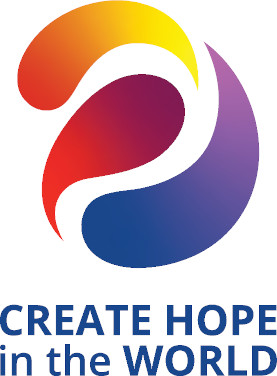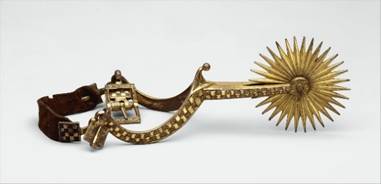|
Rotary International Theme 2023-2024
|
THE
ROWEL
Rotary Club of
Durham |
Rotary International President:
Gordon McInally Rotary District
5160 Governor:
Clair RobertsDurham Rotary President: Glenn Pulliam
_____________ Editor: Phil Price Publisher: Jen Liu |
|
|
|
September 26, 2023
|
|
|
| 2023 Calendar for Durham Rotary | |||||||
|
O c t o b e r |
1 | 2 |
3 No Meeting |
4 | 5 | 6 | 7 |
| 8 | 9 |
10 Meeting Club Assembly (Glenn Pulliam) |
11 | 12 | 13 | 14 | |
| 15 | 16 |
17 No Meeting |
18 | 19 | 20 | 21 | |
| 22 | 23 |
24 Meeting TBD (Mike Wacker) |
25 | 26 | 27 | 28 | |
| 29 | 30 |
31 No Meeting |
|||||
|
N o v e m b e r |
1 | 2 | 3 | 4 | |||
| 5 | 6 |
7 Meeting Tipsy Tuesday at BCCC (Glenn Pulliam) |
8 | 9 | 10 | 11 | |
| 12 | 13 |
14 Meeting TBA (Jen Liu) |
15 | 16 | 17 | 18 | |
| 19 | 20 |
21 No Meeting |
22 | 23 | 24 | 25 | |
| 26 | 27 |
28 No Meeting |
29 | 30 | |||
|
|
The
Meeting Opening
The meeting was called to
order by Past President Larry Bradley, in Glenn Pulliam’s absence, at the Butte
Creek Country Club. Larry asked your editor to lead the pledge, which I did. Jim Patterson then presented the invocation. Following that Larry lead us in singing “God Bless America”
Updates on Dave Jessen: Dave is in Enloe for the past few days as he has blood issue resulted from his chemotherapy. He is also going through physical therapy during the day in Enloe Rehab. Center to gain strength. Please keep him in your thoughts and prayers.
|
|
FUTURE
MEETINGS: Meetings will
be at the location noted, at 6:00 pm. |
|
October 10th: Club Assembly at BCCC. October 24th: Mike Wacker at BCCC. November 7th: Tipsy Tuesday at BCCC November 14th: Jen Liu December 5th: Christmas Party. December 19th: Tom Knowles |
.
Announcements
Larry reported that President Glenn had suffered an attack of
something called Transient Global Amnesia.
This is not a serious condition but is scary and can be mistaken for a
stroke, so he needed to go to the hospital.
The causes are not fully known, but you recover rapidly and he has fully
recovered. He will be back at the next
meeting.
The chairpersons of the Harvest Festival committees met at 5:00
pm, before the meeting. Much was
discussed about improvements for next year.
It was noted that the Harvest Festival was successful this year. Preliminary figures show a gross of $33,740
and a net profit of $24,617
Steve Heithecker was awarded his 5th
Paul Harris Fellowship.
Introduction
of Visitors
John Moss introduced visitors
from the Paradise Club. They were Brian
Gray (past president of the Paradise Club and this year’s winner of the District 5160 Rotarian of the Year award), Melisa Creek,
Megan Buzzard and Rene McCormick. They
were promoting their Crab Feed coming up on February 5th. Steve Plume introduced Jim and Nancy Lee
(our program for the night). Jen Liu
had no one to introduce.
Recognitions

Each of the introductions, or lack thereof, resulted in Steve Plume contributing $5.00 and Jen Liu contributing $5.00.
Steve Plume was having
his 79th birthday so he contributed $10 with a song.
Larry Bradley is having
his 74th birthday. He wasn’t going to sing to himself. But the Club sang anyway. He contributed $20.
Jessica Thorpe is having
her anniversary. She contributed, in absentia,
$50.
Steve Heithecker was having his 22nd anniversary. He contributed $50.
I thought that the
contribution was suppose to be the number of years
you had been married until it reached 50 then reduced by the number of years
after 50.
Next Meeting
The next meeting will be a Club Assembly on October 10th at the BCCC.
Membership
Bring guests who you think you can
interest in becoming a member. Think of
business owners or managers to bring. Your
dinner and your guest’s dinner will be paid for by the Club. Also, bring a guest to one of our occasional
social gatherings.
Go to the following Rotary International web site
for information on membership development:
https://my.rotary.org/en/learning-reference/learn-topic/membership
. From this website there
is access to membership development and other related information.
Tonight’s Meeting Program

Steve
Heithecker presented Nancy Lee who spoke about myths
from the history of Chico. She disabused
us of many things we had believed about Chico. For instance
the rock walls I had always been told were built by the Chinese who lived in
the two Chinatowns in Chico. That is not
true. They were built by 2 Portuguese
farmers, who wanted to clear their farm land.
She was very interesting.
The
Rotary Foundation Donations
You
can make a difference in this world by helping people in need. Your gift can do
some great things, from supplying filters that clean people’s drinking water to
empowering local entrepreneurs to grow through business development training.
The
Rotary Foundation will use your gift to fund the life-changing work of Rotary
members who provide sustainable solutions to their communities’ most pressing
needs. But we need help from people like you who will take action and give the
gift of Rotary to make these projects possible.
When
every Rotarian gives every year, no challenge is too great for us to make a
difference. The minimum gift to The Rotary Foundation is $25.00. An
annual $100.00 gift is a sustaining member. Once your donations
accumulate to $1,000 you become a Paul Harris Fellow.
If
you have any questions ask Steve Heithecker.
It
is possible to learn more about The Rotary Foundation on the Rotary web
site.
Your
gift can be made online or by sending Jessica Thorpe a check made out to The
Rotary Foundation to Durham Rotary, P.O. Box 383, Durham,
California 95958.
Must Be Present to Win Drawing:
Jen
Lui drew Daryl Polk’s name. He was
present to win.
Conclusion
Larry then closed the meeting.
________________________________________________________________
From District 5160
Nothing this week.
____________________________________________________________________________________
From Rotary International
Classrooms wired for success
To close the digital divide in Panama, they
started with the teachers
By Geoffrey
Johnson
It
began, in Panama, with a simple backpack drive.
The
Rotary Club of Panamá Norte loaded the packs with essential supplies and
distributed them to grade schools throughout the country, a classic Rotary
service project repeated in communities around the world. In this case, though,
it led to something extraordinary — momentous changes in Panama’s education
system.
The
spark that ignited it came from what the Rotary members witnessed while
delivering those backpacks about 10 years ago. “One of the things that we saw
was the disaster in terms of technology and in terms of the possibility of kids
being able to learn with technology,” says club member Enedelsy
Escobar-King. “Most of the time what we found was that all of the computers
were destroyed, or they were to be discarded, or that teachers didn’t know how
to use them.”
Over
the next few years, club members continued to deliver backpacks but also laid
the groundwork for a larger project to address the high-tech disaster they had
encountered. Specifically, they turned their attention to two grade schools in
Veracruz, a corregimiento (or township) about 10 miles
southwest of Panama City, where the club is based.

Gwen
Keraval
Working
with the Rotary Club of Westchester (Los Angeles), the Panamá Norte club put
together a global grant that received $72,000 from The Rotary Foundation, District 5280 (California), the club itself,
and other sources. Among other things, it provided each school with 30 laptops
for students; a smart, interactive whiteboard to digitize classroom
presentations and tasks; and all the auxiliary hardware and furniture required
for a high-tech, 21st-century classroom. To ensure the project’s success, the
grant also provided for extensive training of school staff and community
leaders.
The
club launched the project in 2018, and the new equipment and opportunities for
learning were immediately embraced by teachers and students. At the end of the
2019 school year, the project had, by all appearances, been a success. One of
the schools that participated was even chosen to take part in a countrywide academic
competition, a first for the school and, despite failing to win, a laudable
achievement.
Yet
an unexpected problem arose. “The teachers that we had trained for the
interactive classrooms were rotated out,” a regular practice in Panama’s public
schools, says Escobar-King. “And the teachers that were new didn’t
have a clue about technology. We had to start all over again and try to train
those teachers. When we got that setback, we said, well, let’s
find a more permanent solution.”
For
Escobar-King and the rest of Panamá Norte, class was back in session.
Escobar-King
— she goes by “Nelly” — joined the Rotary Club of Panamá Norte in 2015 after a
long career with UNICEF. Some projects she worked on with UNICEF were related to
education, so when she retired and returned to Panama, she knew she wanted to
remain involved in that area.

Enedelsy Escobar-King addresses students in the
digital classroom of a participating elementary school.
Regina
Fuller-White
Escobar-King
was motivated, in part, by the dire state of primary education in Panama. She
points to the results of the exams known as the Programme
for International Student Assessment that are conducted by the Organisation for Economic Cooperation and Development. In
the most recent results, Panama ranked 75th in science and 76th in math among
78 countries and geographic areas and 71st (out of 77) in reading.
With
that in mind, as well as the unexpected development of the teacher shakeup in
Veracruz, the Rotary Club of Panamá Norte posed an important question: “How can
we get teachers already trained so that no matter where they are sent, they
already have the technological tools they could use?”
The
answer turned out to be quite simple: Want to get teachers trained? Go to the
teachers’ training school — in this case, the Normal School in Santiago, about
150 miles southwest of Panama City. “It is the main teaching college in
Panama,” says Escobar-King, “and it’s going to produce
the future teachers of the country. As part of the curriculum, would-be
teachers have to teach in a real classroom. So we said, OK, let’s make sure they do it in interactive
classrooms.”
Working
with the Rotary Club of Kansas City-Plaza in Missouri, as well as other clubs
in Panama, the Panamá Norte club applied for and received a global grant of
more than $230,000 for what they called the Paul Harris Interactive Digital
Classrooms. Six of the classrooms would be installed at the Normal School, and
another classroom at each of the two nearby grade schools where the apprentice
teachers would do their in-class training.
This
time, the grant would again provide the high-tech equipment needed for the
classrooms. But the emphasis was elsewhere. “The most important component was
not just to train the teachers to use the equipment but to teach them
innovative methodologies that use the technology to teach the kids in schools,”
says Escobar-King. “And that’s how the principles of this particular project
were developed.”

Students in the Rotary-sponsored digital
classrooms showed a higher level of engagement.
Enedelsy
Escobar-King
From
the beginning, the project was a model of collaboration among Rotary members,
the Normal School, Panama’s ministry of education (Meduca),
the Universidad Tecnológica de Panamá, and the Normal
School’s parent-teacher association. Lessons learned from the Veracruz
experiment were invaluable as the project in Santiago took shape.
Escobar-King
also singled out the Basic Education and Literacy Rotary Action Group (whose board she serves on) and
the Rotary Foundation Cadre of Technical Advisers. “They are valuable Rotary resources,” says
Escobar-King, “and we have a very close working relationship with them.”
For
help in designing the curriculum, the Panamá Norte club turned to the
Universidad Tecnológica de Panamá, which put them in
touch with Dillian Staine, a professor at the Universidad Latina de Panamá. He
designed the curriculum with both the future teachers and the teachers leading
the Rotary-sponsored classes in mind, There were,
however, some complaints about the rigor of the course. “It is quite an intense
course,” Escobar-King acknowledges. “But we don’t want
to reduce the quality of the course. We would rather help prospective teachers
reach that level of learning.”
Not
only will the Santiago project enhance the abilities of those teachers at the
Normal School but it will have what its creators call a “multiplier effect.”
According to the calculations laid out in the global grant, each teacher, once
graduated and posted in a school, will have 30 students in a classroom. Over
just one year, that means that as many as 2,500 students would be beneficiaries
of the project.
What’s
more, those newly posted teachers will have the opportunity to train other
teachers at their new schools in the innovative digital teaching techniques
they learned at the Normal School. And, of course, the Normal School will
continue to train other upcoming teachers in the Paul Harris Classrooms, which Meduca has agreed to oversee.
At
press time, Panamá Norte, working with Meduca, the
Rotary Club of Las Vegas WON, and other clubs in Panama, was preparing to submit an application for another global grant. If approved,
it would provide funds three times greater than those awarded to the Santiago
project and allow the digital interactive classrooms to expand across Panama.
“We are very committed to the project,” says Escobar-King.
Panama’s
future may well depend on that.
This story originally
appeared in the September 2023 issue of Rotary magazine.
|
The Rotary
International web site is:
www.rotary.org
District 5160 is:
www.rotary5160.org The Durham Rotary
Club site is:
www.durhamrotary.org The Rowel Editor may be contacted at:
pbprice1784@gmail.com The deadline for the Rowel 6:30
am on Wednesdays. The Editor’s photographs published in the Rowel are
available, upon request, in their original file size. Those published were substantially
reduced in file size. |




